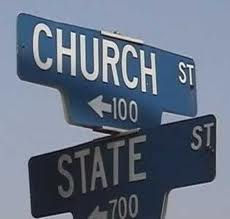
Jesus described himself as anthropos. This word in the Greek text was originally translated “son of man.” We can better translate it today as “the human one.” The latter is the central truth of Christianity.
If the central truth of Christianity is what it means to be a human person we have to ask ourselves, does the practice of American Catholicism bring us closer to this truth? Christianity, including Catholicism, should foster human persons who have developed their own well-formed interior moral sense. Well formed enough to be able to look beyond their own immediate family, circle or group. Well formed enough to have the compassion to go deeper and want to change the legal, political, social and economic structures that keep people, indeed entire nations, in poverty. Charity alone won’t accomplish this.
Instead, in observing North American Catholic communities, Catholicism seems to foster what governments also hope to accomplish; too many people who look to external authorities for moral guidance instead of forming their own; too many who are compliant with cultural norms – even when those norms or lifestyles create suffering elsewhere in the world.
American Catholicism exhibits an obvious clericalism that promotes poor personal boundaries and the abdication of personal responsibility. Too many practicing American Catholics are committed to attending Mass every Sunday yet resist moving out into the world and learning about the complex nature of poverty. It seems that American Catholics have more concern and interest in sports teams.
Is this all Catholicism can achieve in North America? If this is where we are as an American Catholic community, we wouldn’t score high on any evaluation I can think of.
While part of this can be blamed on a Church that has become inculturated, we need to look critically at church legal and organizational structures that promote external authority and immaturity over adult responsibility. From ordinational leadership with no accountability to the annulment tribunal, we as Catholics have succumbed to church structures that promote the value of external authority rather than take responsibility for the development of our own mature autonomy – primacy of conscience.
Yet we claim to be Catholic Christians. As such, we claim to be called by God to live differently in the world. We claim to be discerning and listening to the Spirit. By definition this means we live by our own well-formed interior authority, God’s authority within us – not exterior authority, not the expectations of our culture or society. Do we?